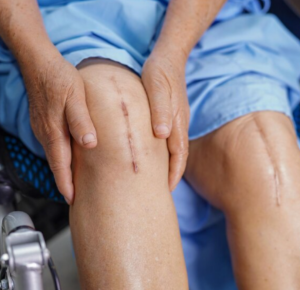1. Tattoos and Surgery
Tattoos are a popular form of self-expression, but getting one before surgery raises important questions. This article explores whether it’s safe to get a tattoo before undergoing a surgical procedure, addressing potential risks, medical opinions, and best practices to ensure your health and safety.
2. Understanding the Tattoo Process
When you get a tattoo, ink is injected into the dermal layer of your skin using needles. This process creates a wound that needs time to heal. The healing process involves the skin and immune system working to repair and seal the area, which can take several weeks.
3. Healing Time for Tattoos
The healing time for a new tattoo typically ranges from two to four weeks, but it can vary based on the tattoo’s size, placement, and your personal health. Proper aftercare is crucial to prevent infections and ensure the tattoo heals correctly, which is essential if you are planning surgery.
4. Risk of Infection
A new tattoo creates an open wound, making it susceptible to infections. If you get a tattoo before surgery, you risk introducing bacteria into your bloodstream, which can complicate the healing process of both the tattoo and the surgical site. Infections can delay surgery or cause severe complications.
5. Impact on Immune System
Your immune system works hard to heal a new tattoo, which can temporarily weaken your body’s ability to fight off other infections. Before surgery, it’s vital to have a strong immune system to recover effectively. Getting a tattoo can strain your immune system, potentially affecting your surgical outcome.
6. Potential for Allergic Reactions
Tattoo inks contain various substances that can cause allergic reactions in some people. Symptoms can range from mild irritation to severe reactions requiring medical attention. Experiencing an allergic reaction before surgery can complicate pre-surgical assessments and delay your procedure.
7. Scarring and Tattoo Healing
Proper healing of a tattoo is crucial to avoid scarring. Scarring can be problematic if it occurs near the surgical site, as it can interfere with surgical procedures and wound healing. Ensuring your tattoo is fully healed before surgery minimizes the risk of complications related to scarring.
8. Consult Your Surgeon
Always consult your surgeon before getting a tattoo if you have an upcoming surgery. Your surgeon can provide personalized advice based on your medical history, the type of surgery you are having, and the potential risks associated with getting a tattoo close to your surgical date.
9. Timing Is Everything
If you are determined to get a tattoo before surgery, timing is critical. Plan your tattoo at least several months before your surgery date. This allows ample time for the tattoo to heal completely and for your body to recover fully, reducing the risk of complications during surgery.
10. Pre-Surgical Assessment
During your pre-surgical assessment, disclose any recent tattoos to your healthcare provider. This information is crucial for your medical team to evaluate any potential risks and make informed decisions about your surgical care plan, ensuring your safety and the success of your surgery.
11. Impact on Surgical Site
Consider the location of your tattoo in relation to your surgical site. Avoid getting a tattoo near or on the area where surgery will be performed. Tattoos in these areas can interfere with surgical procedures, increase the risk of infection, and complicate post-surgical healing.
12. Tattoo Aftercare and Surgery
Proper tattoo aftercare is essential to prevent infections and promote healing. Follow your tattoo artist’s aftercare instructions meticulously. Additionally, inform your surgeon about your aftercare routine so they can provide guidance on how to manage both your tattoo and post-surgical care effectively.
13. Risks of Anesthesia
There are concerns about how a new tattoo might react under anesthesia. Anesthetics can affect blood flow and immune response, which might complicate the healing of a fresh tattoo. Discuss any concerns with your anesthesiologist to ensure they are aware of your recent tattoo.
14. Medical Opinions on Tattoos Before Surgery
Medical professionals generally advise against getting a tattoo shortly before surgery. The primary concerns are the risk of infection, impact on the immune system, and potential complications during the surgical procedure. Always seek medical advice before making a decision.
15. Tattoo Placement and Surgery
If you still decide to get a tattoo before surgery, be strategic about its placement. Choose a location far from the surgical site to minimize the risk of complications. This consideration helps protect both your new tattoo and the success of your surgical procedure.
16. Alternatives to Immediate Tattoos
If you are keen on getting a tattoo but have an upcoming surgery, consider temporary alternatives like henna or temporary tattoo stickers. These options allow you to express yourself without the risks associated with getting a permanent tattoo before surgery.
17. Psychological Impact
The psychological impact of getting a tattoo should not be overlooked. While tattoos can boost self-esteem and personal expression, consider the potential stress and anxiety if complications arise. Balancing the desire for a tattoo with the importance of a successful surgery is crucial.
18. Post-Surgical Care and Tattoos
After your surgery, focus on your recovery and avoid getting a new tattoo until you are fully healed. Surgery puts a strain on your body, and additional stress from a new tattoo can hinder your recovery process. Prioritize your health and allow your body time to heal.
19. Long-Term Health Considerations
Think about the long-term health implications of getting a tattoo before surgery. Any complications, such as infections or delayed healing, can have lasting effects on your overall health. Weigh the immediate desire for a tattoo against potential long-term health risks.
20. Patient Experiences
Many patients have shared their experiences with getting tattoos before surgery. Some report no issues, while others have faced complications. Learning from these experiences can provide valuable insights and help you make an informed decision about whether to get a tattoo before your surgery.
21. Professional Tattoo Artists’ Advice
Consult with professional tattoo artists about your situation. Experienced artists can provide advice on timing, aftercare, and potential risks. Their expertise, combined with medical advice, can help you make a well-rounded decision regarding your tattoo and surgery plans.
22. Importance of Hygiene
If you decide to proceed with getting a tattoo, ensure the tattoo studio follows strict hygiene standards. A clean, sterile environment reduces the risk of infection, which is crucial when getting a tattoo before surgery. Verify the studio’s credentials and ask about their sanitation practices.
23. Tattooing and Surgical Marks
If your surgery involves marking the skin, discuss with your surgeon how a new tattoo might affect these marks. Surgical marks are essential for precise procedures, and a new tattoo could interfere with their visibility. Ensuring clear communication with your medical team is key.
24. Combining Aesthetics with Health
Balancing aesthetics with health is essential when considering a tattoo before surgery. While self-expression through tattoos is important, prioritize your health and the success of your surgery. Making informed, cautious decisions can help you achieve both your aesthetic goals and a successful surgical outcome.
25. Conclusion: Making an Informed Decision
Getting a tattoo before surgery involves careful consideration of timing, potential risks, and medical advice. Prioritize your health and consult with both medical professionals and experienced tattoo artists. By making an informed decision, you can enjoy your tattoo while ensuring a safe and successful surgery.



